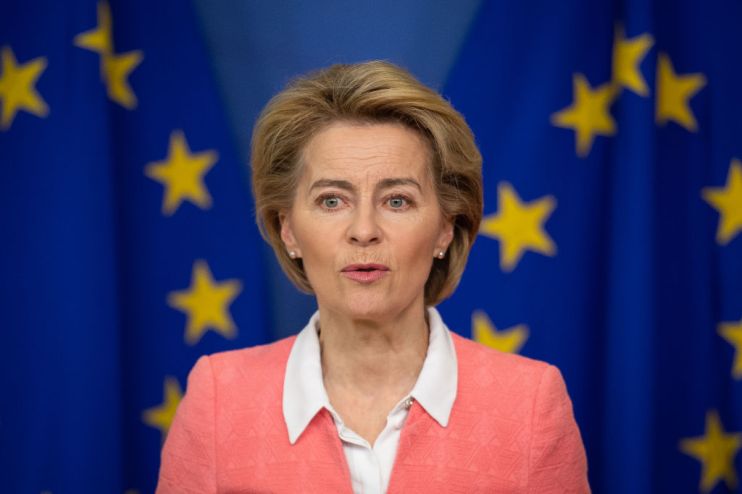EU turns to Pfizer for more Covid jabs amid fresh vaccine shortage

The EU has ordered an extra 50m doses of the Pfizer/Biontech Covid vaccine following Johnson & Johnson’s surprise announcement yesterday that jab deliveries to Europe face significant delays.
European Commission president Ursula Von der Leyen said this afternoon that the bloc will bring forward an order of 50m doses of the vaccine which had been earmarked for the next quarter.
The accelerated delivery will bring the EU’s total doses of the two-shot Pfizer vaccine to 250m so far.
Negotiations are also underway for Pfizer to supply 1.8bn doses of a “second generation” vaccine to tackle emerging Covid variants, Von der Leyen said in a televised statement.
It is unclear whether those doses will be subject to higher prices mooted by Pfizer for future vaccine contracts.
Bulgarian Prime Minister Bokyo Borissov said yesterday that the US pharmaceutical giant has increased the cost of future vaccine orders sold to the EU 60 per cent — from €12 per dose to €19.50.
It comes as the EU faces fresh vaccine supply shortages as concerns linger over the potential risk of rare blood clots associated with both the Astrazeneca and Johnson & Johnson vaccines.
Johnson & Johnson yesterday announced it will “proactively delay” the rollout of its Covid vaccine in Europe while it investigates reports of blood clots among patients in the US.
The European Commission slammed the move as “completely unexpected”, adding that it was seeking clarification from Johnson & Johnson.
The bloc has signed a deal for 200m doses of the US pharmaceutical firm’s single-shot vaccine, with the first deliveries of the jab earmarked to arrive in Europe on 19 April.
The EU’s medicines regulator last week sought to quell concerns over possible blood clot links with the Astrazeneca vaccine, ruling that the benefits of receiving the jab outweighed the potential risks.
However, its recommendation that blood clots should be listed as a very rare side effect of the Oxford jab have damaged public trust in the vaccine across the continent.
Several countries have taken matters into their own hands, with Denmark announcing this afternoon that it will ban the Astrazeneca vaccine altogether.
The European Commission has since urged EU countries to “work together” to strike up a coherent vaccine strategy, as the bloc’s sluggish vaccine programme threatens to exacerbate a third wave of coronavirus sweeping across the continent.
Just 19.4 per cent of the EU’s adult population have received their first dose of a coronavirus vaccine so far, according to the European Centre for Disease Prevention and Control’s Covid Vaccine tracker.
“It is essential that we follow a coordinated European approach … which does not confuse citizens, and that does not fuel vaccine hesitancy,” said Stella Kyriakides, EU commissioner for health.